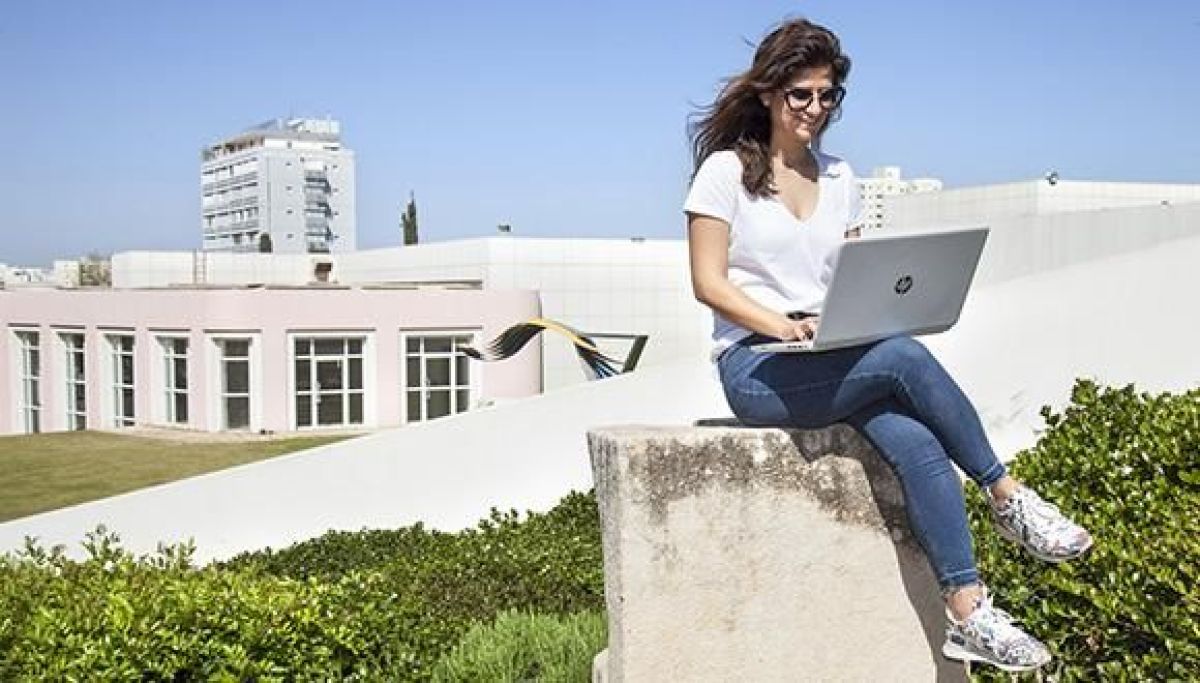Online With Students From Iran, Saudi Arabia, Syria, Lebanon and Iraq
The Israeli course on Islam has been ranked as one of the 50 best online courses in the world.
A coup for the Innovative Learning Center and the Zvi Yavetz School of Historical studies at Tel Aviv University: The online course “Arab-Islamic History: From Tribes to Empires” has made the list of the world’s top 50 online courses. The course, launched only two years ago, has gained immense popularity among young people from all over the world who are interested in the history of Islam. So far, over 20,000 students from 155 countries around the world have enrolled in the course.
There has been a record level of interest among residents of Muslim countries, including those with whom Israel has no diplomatic relations. 318 students from Pakistan, 301 from Turkey, 205 from Indonesia, 109 from the United Arab Emirates, and 86 from Egypt are enrolled in the course.
The course also includes students from Iran (31), Lebanon (8), Saudi Arabia (52), Qatar (30), Kuwait (23), Jordan (39), Syria (4), Iraq (21), Yemen (1), Afghanistan (8), Sudan (5), Oman (14), Malaysia (51), Bahrain (6) and the Palestinian Authority (12).
The ranking of the top 50 courses is carried out by the website “Class Central,” the most widely-recognized body listing online courses from a variety of platforms and leading academic institutions from around the world. The course was developed in collaboration with The Council for Higher Education and Digital Israel.
The course lecturer, Prof. Miri Shefer-Mossensohn of Tel Aviv University’s Department of Middle Eastern and African History, who heads the Zvi Yavetz School of Historical Studies, points out that since the outbreak of COVID-19, enrollment in the course has significantly increased as many young people are taking advantage of the time at home to enrich their knowledge. “Lots of students from the Muslim world have signed up for the course because it makes the history of the Muslim people accessible to them from an academic point of view, without a religious tone,” explains Prof. Shefer-Mossensohn. “The course has resonated so much that our students in Pakistan say that it is considered to be the best course on Islamic history in their country.”
Prof. Shefer-Mossensohn adds: “I taught this course for many years in the classroom and usually, several dozen students enrolled each year, all of whom, naturally, were Israelis. The digital space opened up new avenues to us, and to our delight the course quickly aroused great interest among Muslims from around the world. We receive very positive responses to the course, and many students have told us that they were very surprised that it was a Jewish and Israeli woman who succeeded in captivating them and teaching them about the history of their people.”
One of the students from Syria thanked the lecturer at the end of the course, writing: “Thanks to this course I went back to my roots. I am a Muslim Syrian and wanted to learn more about our history, which made us who we are today. Tribes to Empires – what a thoughtful title for the beautiful journey we have been through.”
Yuval Schreibman, CEO of TAU Online, Tel Aviv University’s Innovative Learning Center: “This is a major achievement that proves that even in the age of high-tech, the humanities are flourishing. Young people all over the world are seeking to learn good, quality content. Thanks to the digital tools at our disposal, we are creating a relevant and innovative learning experience that opens a door to Israel for various audiences around the world, including from Arab countries.”




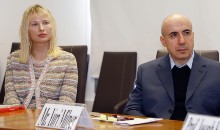 We must also recognize that science is global and universal. It is one of the few fabrics that connects the world and brings us all together. Especially in the world now, when people are feeling separated from each other due to the COVID-19 crisis, I think science is one of those elements that brings us all together.
Photo (left): The Milners at a TAU event in honor of the 70 for 70 Initiative. Credit: Yehonatan Zur.
What lies behind your idea that scientists should be compensated like celebrities?
In today’s world, recognition is based on either celebrity status or financial wealth. Few people are celebrated for their intellectual achievements. What the Breakthrough Prize is trying to achieve is to bring about a more balanced world whereby intellectual achievement will be celebrated at least on par with other achievements, and where scientists will receive the recognition they deserve. We thought that celebrating the most brilliant minds could maybe inspire kids interested in science to pursue an academic career.
What advice would you give to young Israeli scientists who dream of changing the world?
Although I tried for a number of years to do this myself, I wasn’t too successful. My advice would be contrary to my own experience – try to focus on fundamental science. If you put your name on a building, that building will not survive over hundreds of years. But if you make a scientific discovery, this is something that cannot ever be undone. In a thousand years from now, Einstein will still be remembered for his theory of general relativity, while many other great men will be forgotten. So if you really want to leave a lasting legacy for our civilization, the only sure way is through fundamental science and making discoveries.
I envy people who choose basic science as their occupation. Not being able to make a contribution myself, I am trying to focus our foundation on supporting those who can.
Tell us about your connection to Israel and making Aliyah.
I became an Israeli citizen over 20 years ago. This was really an important calling for me because, growing up in the Soviet Union, I had limited ability to connect with my heritage and ancestors in a meaningful way. As soon as it was possible, I decided to become an Israeli citizen and, to the extent possible, to contribute to the State of Israel.
Featured image: Yuri and Julia Milner. Courtesy of Yuri and Julia Milner.
We must also recognize that science is global and universal. It is one of the few fabrics that connects the world and brings us all together. Especially in the world now, when people are feeling separated from each other due to the COVID-19 crisis, I think science is one of those elements that brings us all together.
Photo (left): The Milners at a TAU event in honor of the 70 for 70 Initiative. Credit: Yehonatan Zur.
What lies behind your idea that scientists should be compensated like celebrities?
In today’s world, recognition is based on either celebrity status or financial wealth. Few people are celebrated for their intellectual achievements. What the Breakthrough Prize is trying to achieve is to bring about a more balanced world whereby intellectual achievement will be celebrated at least on par with other achievements, and where scientists will receive the recognition they deserve. We thought that celebrating the most brilliant minds could maybe inspire kids interested in science to pursue an academic career.
What advice would you give to young Israeli scientists who dream of changing the world?
Although I tried for a number of years to do this myself, I wasn’t too successful. My advice would be contrary to my own experience – try to focus on fundamental science. If you put your name on a building, that building will not survive over hundreds of years. But if you make a scientific discovery, this is something that cannot ever be undone. In a thousand years from now, Einstein will still be remembered for his theory of general relativity, while many other great men will be forgotten. So if you really want to leave a lasting legacy for our civilization, the only sure way is through fundamental science and making discoveries.
I envy people who choose basic science as their occupation. Not being able to make a contribution myself, I am trying to focus our foundation on supporting those who can.
Tell us about your connection to Israel and making Aliyah.
I became an Israeli citizen over 20 years ago. This was really an important calling for me because, growing up in the Soviet Union, I had limited ability to connect with my heritage and ancestors in a meaningful way. As soon as it was possible, I decided to become an Israeli citizen and, to the extent possible, to contribute to the State of Israel.
Featured image: Yuri and Julia Milner. Courtesy of Yuri and Julia Milner.
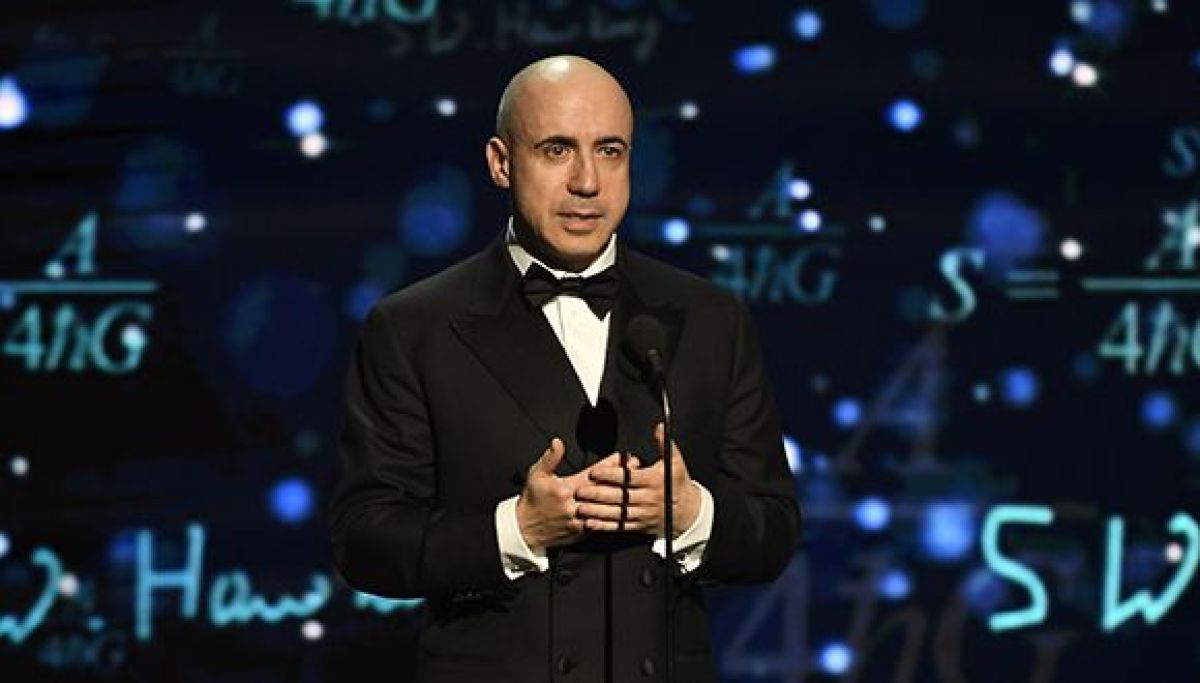


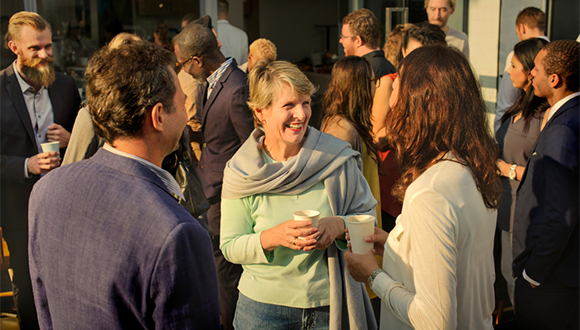

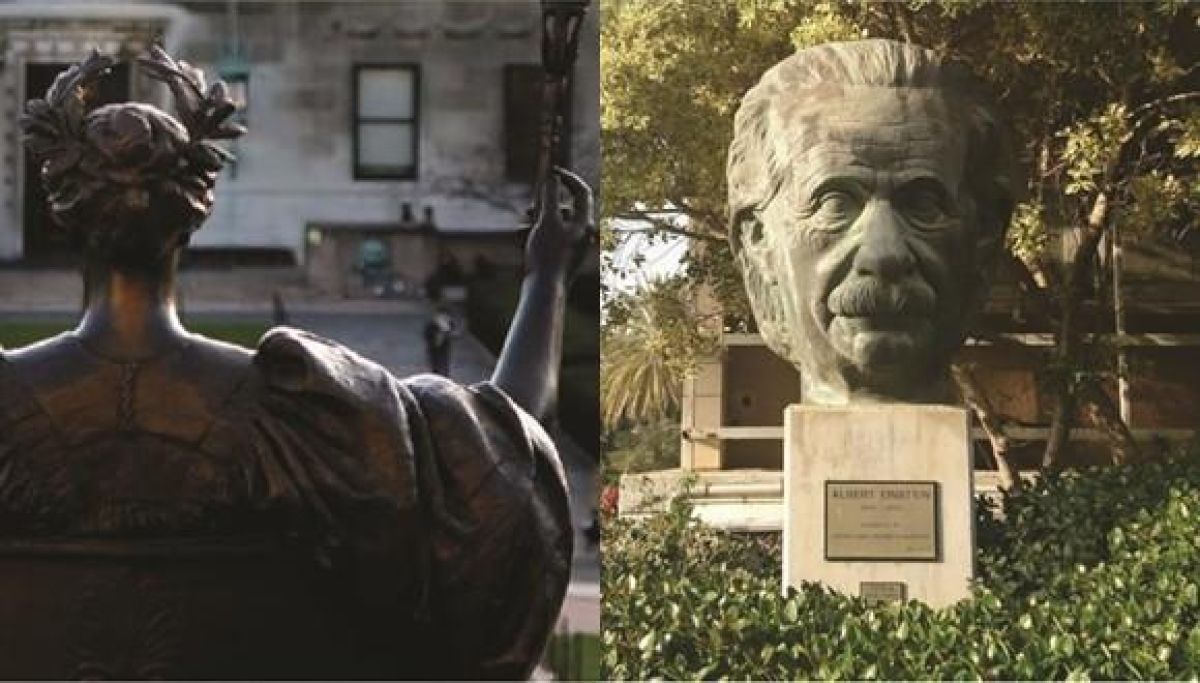

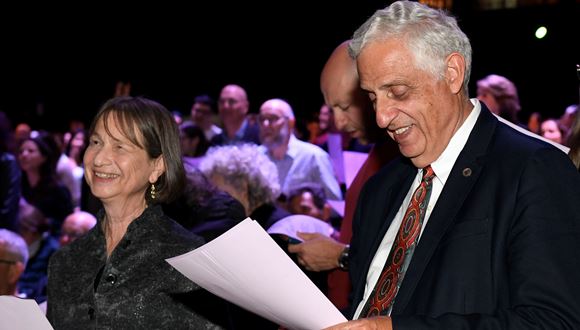
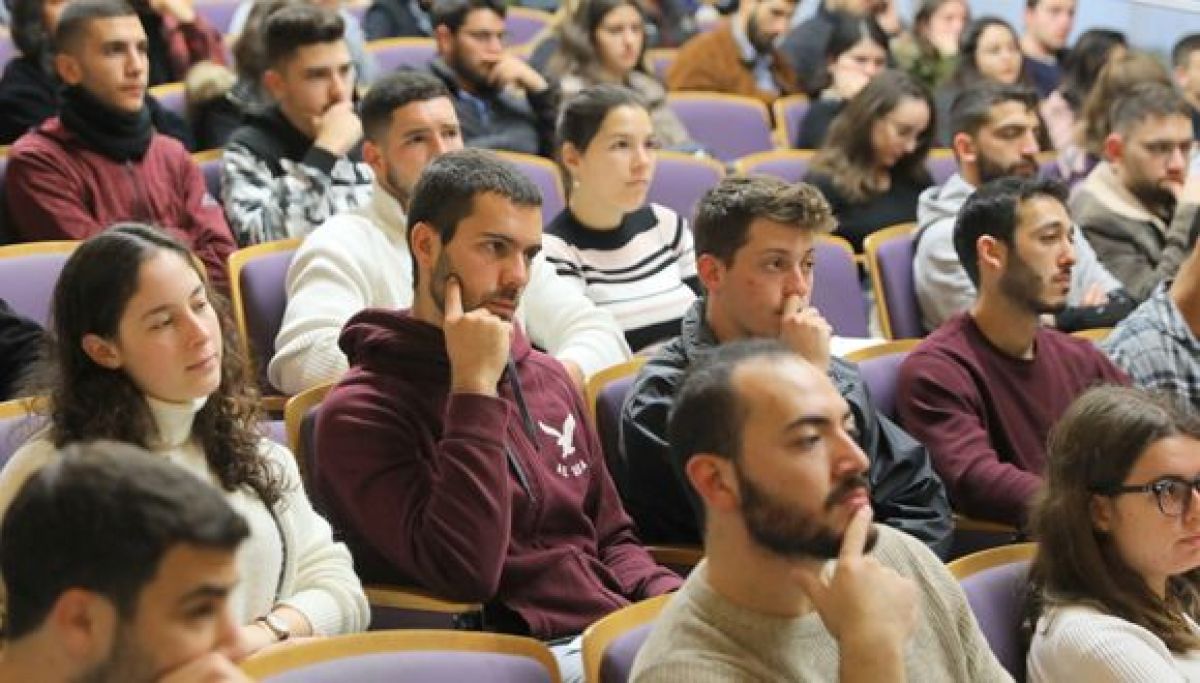

 Was he serious about it at the time? “Absolutely not,” says Prof. Rechavi. “I didn’t think it through, and didn’t think people would be interested. It was just a tweet, I didn’t think about it for more than a few seconds.”
Nonetheless, within hours, Prof. Rechavi got responses from scientists all over the world.
Was he serious about it at the time? “Absolutely not,” says Prof. Rechavi. “I didn’t think it through, and didn’t think people would be interested. It was just a tweet, I didn’t think about it for more than a few seconds.”
Nonetheless, within hours, Prof. Rechavi got responses from scientists all over the world.
 (Colleen Murphy, molecular biologist from Princeton, and Piali Sengupta, a neurogeneticist from Brandeis)
(Colleen Murphy, molecular biologist from Princeton, and Piali Sengupta, a neurogeneticist from Brandeis)
 (Ahna Skop, geneticist from UW-Madison)
(Ahna Skop, geneticist from UW-Madison)
 (Javier Irazoqui, microbiologist from the University of Massachusetts)
Within days, Prof. Rechavi received hundreds of messages from people who wanted to participate. And so, two days after the original tweet, the idea became a reality:
(Javier Irazoqui, microbiologist from the University of Massachusetts)
Within days, Prof. Rechavi received hundreds of messages from people who wanted to participate. And so, two days after the original tweet, the idea became a reality:
 “One of the great things about Twitter,” Prof. Rechavi says, “is that it feels like a big, global community of scientists who want to learn from each other and support each other. I want the conference to feel that way too. I want it to be friendly and welcoming, I want people to feel supported by the crowd. That kind of environment is great for collaboration.”
The “Woodstock of Science”
Woodstock.bio is different from other conferences. The event will have 75 speakers, with very short talks, and presentations containing only one slide. The order of speakers within each session will be decided randomly, to keep things fresh and spontaneous.
Each speaker will choose their own “Walk Up Song”, a short musical intro, like when a baseball hitter is walking up to the pitch. As soon as one person is done talking, a random generator will decide on the next song, from among the speakers listed for that session, so the order will be a surprise even to the speakers themselves. Prof. Rechavi hopes this will make the event feel more like a festival, and takes being compared to Woodstock as a compliment.
“One of the great things about Twitter,” Prof. Rechavi says, “is that it feels like a big, global community of scientists who want to learn from each other and support each other. I want the conference to feel that way too. I want it to be friendly and welcoming, I want people to feel supported by the crowd. That kind of environment is great for collaboration.”
The “Woodstock of Science”
Woodstock.bio is different from other conferences. The event will have 75 speakers, with very short talks, and presentations containing only one slide. The order of speakers within each session will be decided randomly, to keep things fresh and spontaneous.
Each speaker will choose their own “Walk Up Song”, a short musical intro, like when a baseball hitter is walking up to the pitch. As soon as one person is done talking, a random generator will decide on the next song, from among the speakers listed for that session, so the order will be a surprise even to the speakers themselves. Prof. Rechavi hopes this will make the event feel more like a festival, and takes being compared to Woodstock as a compliment.
